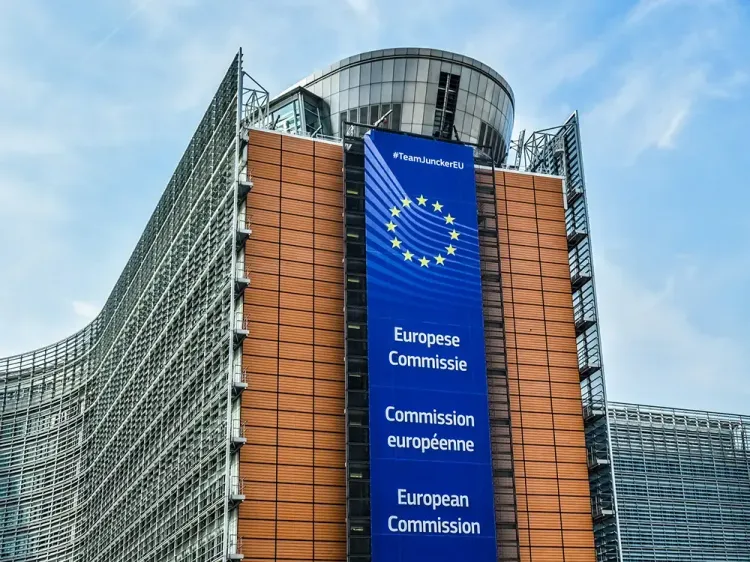EU Urges Accelerated Action on Water Safeguarding and Flood Management

Synopsis
Key Takeaways
- Only 39.5% of EU surface water bodies have good ecological status.
- Contamination from mercury and other pollutants is widespread.
- Member states need to enhance compliance with EU water laws.
- Investments in flood prevention are crucial.
- Marine macro litter decreased by 29% from 2020 to 2021.
Brussels, Feb 5 (NationPress) The European Commission has urged for accelerated action throughout the European Union (EU) to enhance water protection and improve flood risk management.
The most recent report detailing the condition of water in the EU reveals that merely 39.5 percent of EU surface water bodies meet good ecological standards, while only 26.8 percent of these waters achieve satisfactory chemical status, as reported by the Xinhua news agency.
"This situation is primarily attributed to extensive contamination from mercury and other harmful pollutants," stated the Commission, highlighting that water scarcity and drought are increasingly pressing issues affecting the majority of EU waters.
In light of these findings, the Commission recommended that member states enhance their compliance with EU water regulations to maintain pollution thresholds, improve wastewater management, and secure adequate funding to effectively implement water management strategies. They should also tackle ongoing environmental issues, such as chemical pollution, and advocate for water reuse, the Commission emphasized.
Additionally, member states must invest in flood prevention strategies, which should focus on ecosystem restoration, nature-based solutions, and early warning systems. This comes in response to several significant floods that have impacted numerous EU nations, including Slovenia, Spain, Germany, Austria, Poland, Romania, and France in the last two years.
The Commission further advised member states to bolster initiatives aimed at protecting marine biodiversity and mitigating nutrient, chemical, and underwater noise pollution. They should collaborate and contribute to the formulation of the upcoming European Water Resilience Strategy, with a consultation event planned for March 6.
Despite the challenges ahead, the Commission acknowledged noteworthy advancements in recent years. The report indicates that marine macro litter along the EU coastline decreased by 29 percent from 2020 to 2021 compared to the 2015-2016 period. Additionally, the presence of single-use plastics on EU coastlines has seen a 40 percent reduction, while fisheries-related items and plastic bags have dropped by 20 percent.









